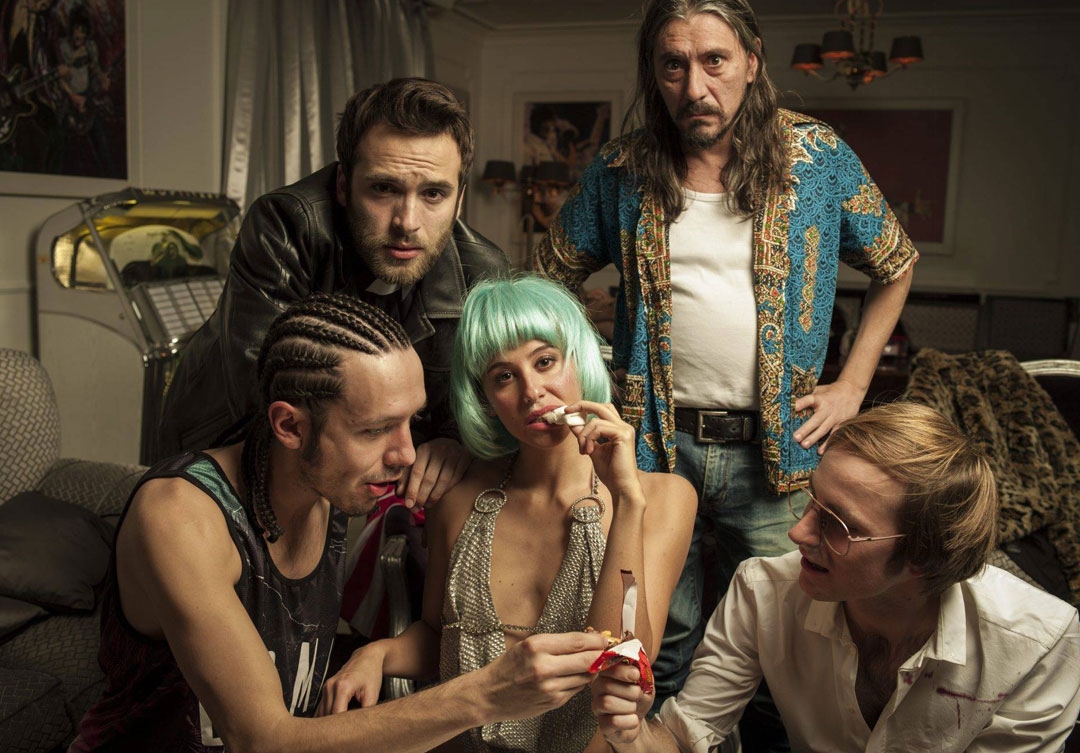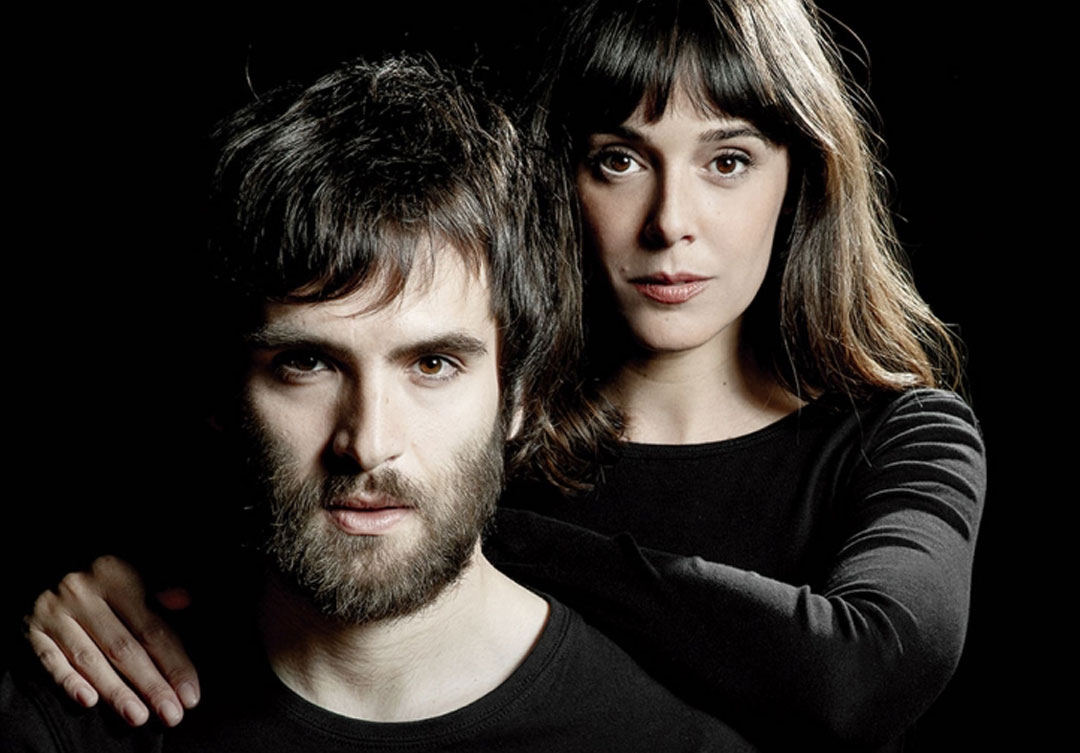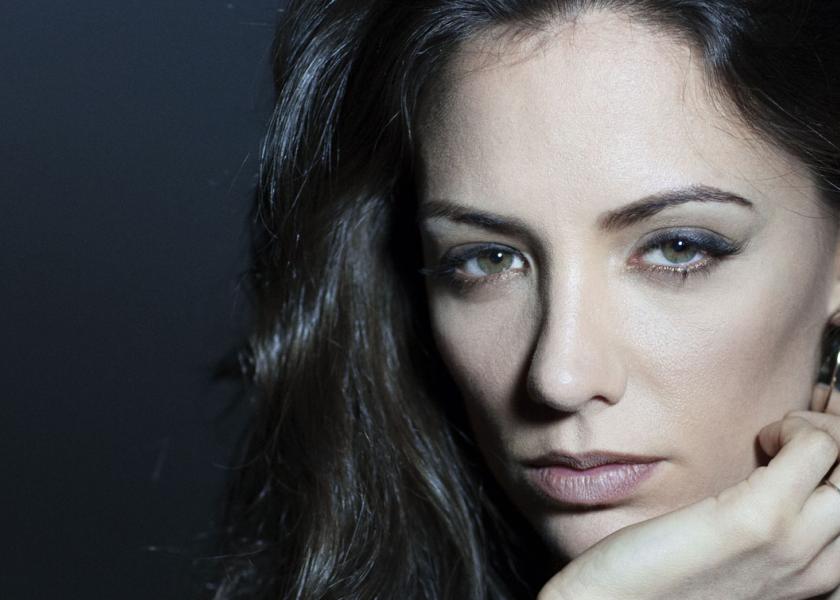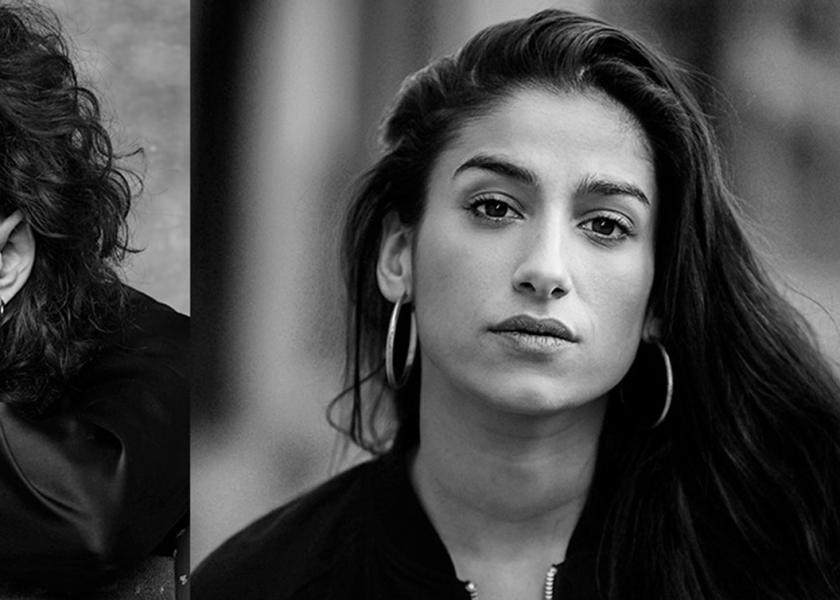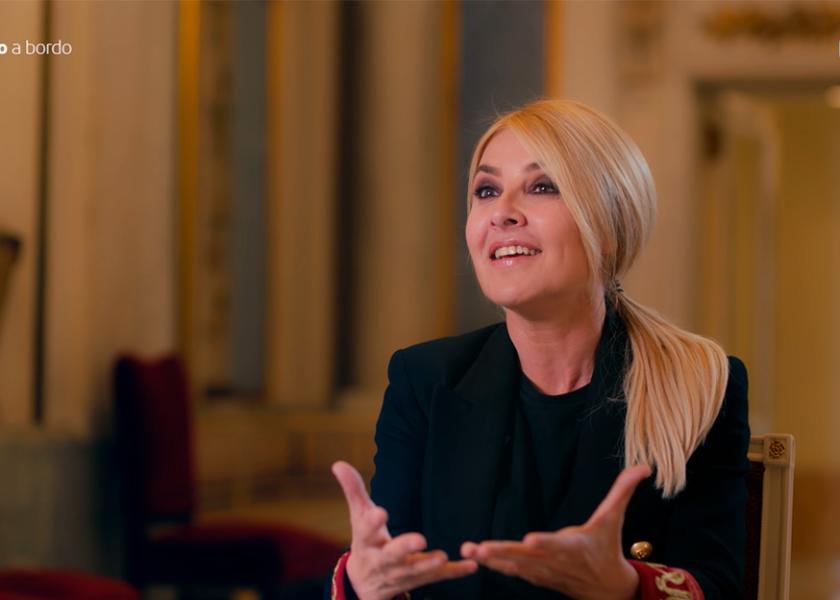Ricardo Gómez
The eternal actor
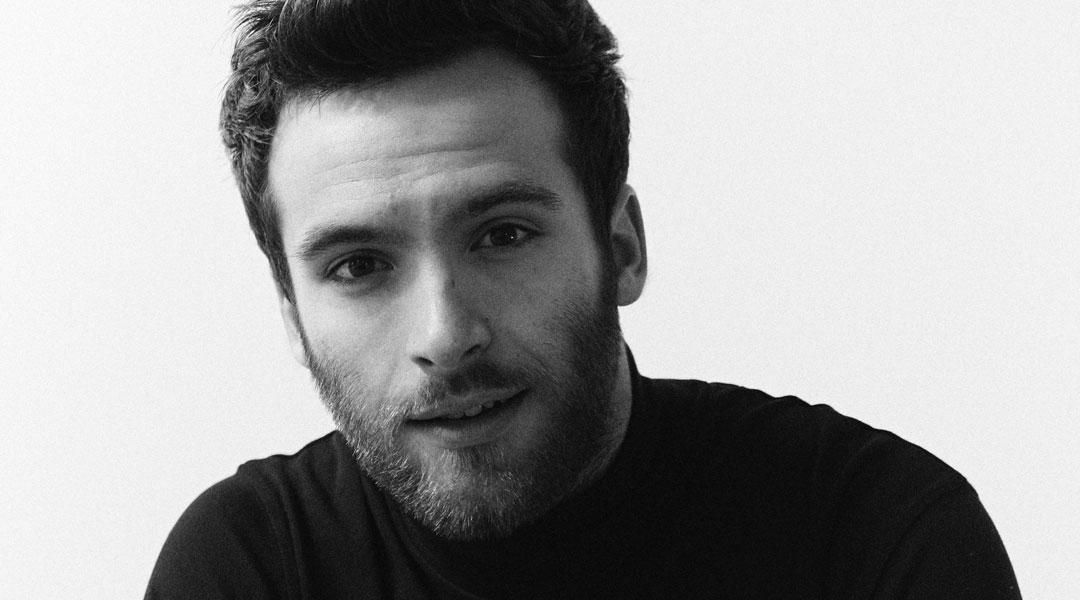
Before even knowing what being an actor meant, Ricardo Gómez was already acting. At the tender age of six, he made his theatre debut, where he returned when he needed to give his talent free rein beyond the series that made him famous. In recognition of his work onstage, including plays like ‘Mammón’, ‘Red’ or ‘The Pillowman’, he receives the Young Talent Talía Award. And soon he’ll be directing his first film!
Ricardo Gómez (Collado Villalba, 1994) is perfectly aware that, in one way or another, for most Spaniards he will always be Carlitos. But he’s not complaining: “Obviously the big project in my life is Cuéntame and that’s something that everyone knows.” Nevertheless, and these are our own words, this actor from Madrid is much more than that, and he has more than proven this in recent years. His work in films like 1898, Our Last Men in the Philippines—nominated for the Goya Award for Best New Actor—, The Replacement—nominated for the Feroz Award for Best Actor—, or the recent Nevenka, alongside his roles in series like Unauthorized Living or The Route—nominated for the Iris Award for Best Actor—have allowed him to step outside his comfort zone and declare himself to others, but also himself. But it was the theatre, the place where he first became an actor at the age of six, where he sought refuge when he needed to explore new horizons beyond Cuéntame.
It is precisely his performances in plays like Mammón —Fotogramas de Plata for Best Actor in Theatre—, Rojo or El hombre almohada, among others, which make him worthy of the 2025 Young Talent Talía Award awarded by the Academia de las Artes Escénicas in collaboration with Iberia. Here are Ricardo’s thoughts on talent: “Talent is that feeling that pushes you to do something without really knowing why. And even though you might fight against putting that idea into practice, you end up doing it anyway.” If that feeling hadn’t led him down the acting path, what would Ricardo be doing now? “If instead of starting to act at the age of six, I’d fallen in love with cooking, imagine. I’d be on my second Michelin star! (laughs).”
Not everybody knows that your artistic career started in the theatre and not on TV. Do you have fond memories of that time?
Yes, I was very little, but when something exceptional happens to you, it becomes engraved in your mind. When I was six, I started working in The Beauty and the Beast musical at the Lope de Vega Theatre on Gran Vía in Madrid—where they are currently showing The Lion King—playing the role of Chip the teacup, and it was incredible. I was tiny, and all of that felt like being at Disneyland.
You’ve spent your whole life acting, but when did you feel like you could call yourself an actor?
That’s a good question. Even today, I often have doubts. I started out really young, just going with the flow, and as I grew up, I wanted to do my bit. I guess I took a long time to feel like an actor, in part because it took me a while to feel that people took me seriously outside my comfort zone, in this case, Cuéntame. It was one of my biggest fears. When I realised that outside of that environment, there were people who valued my work, I started to believe in myself more.
“I guess I took a long time to feel like an actor, in part because it took me a while to feel that people took me seriously outside my comfort zone, in this case, ‘Cuéntame’”
Among the actors of your generation, it’s hard to find someone with such a solid career onstage. Why is the theatre special to you?
Theatre has everything. I’ve been doing it since I was six, and I also grew up seeing my mother onstage. After many years on TV, I found my refuge in a rehearsal room and onstage with the audience right in front of me. I owe a lot to theatre, and I know that, even though there are moments throughout my career where audiovisuals are the focus of my attention, I’m never going to put theatre aside.
You’re going to receive the Young Talent Talía Award. What does receiving the recognition of the Academia de las Artes Escénicas mean to you?
It’s beautiful. Theatre is a really tough discipline, where it’s really hard to carve out a niche for yourself and for people to think of you and take you seriously. It takes a lot of work and is harder than it seems. I’ve been lucky to work on a series of really ambitious and acclaimed projects in recent years. I’ve also been allowed to grow by playing vastly different roles. To feel that the Academia has seen all of this and has decided to reward me for it makes me feel very honoured and grateful.
The audience has watched you grow up; have you ever felt the need to do away with the image people had of you?
I’ve never really cared about what people think of me. I know what I’m like, and my people know that I’m very different to the public image that the audience may have of me. When you see someone on TV for so many years, the idea you have about that person is intricately connected to what the scriptwriters write. I’ve never felt the need to proclaim my real personality because I’d rather only reveal it to those I choose to.
In a way, you learnt to separate your personal and professional lives, right?
There’s no other choice, really. If as well as living an atypical situation, which is growing up while working on something with massive reach, you don’t understand that it’s just a job —just another part of your day-to-day life, like an after-school activity— and you turn it into the centre of your life, you can fall into a very dangerous spiral.
“I owe a lot to theatre, and I know that, even though there are moments throughout my career where audiovisuals are the focus of my attention, I’m never going to put theatre aside”
Maybe it’s just my perception, but you seem very selective when it comes to picking your projects. What makes you accept a role?
When you make room for yourself in the industry, you are filled with doubt because the path is treacherous. If you are privileged—like I consider myself to be—and you can wait, you’re afraid that months will go by before something that you really love comes along. I prefer to play a smaller role in a project that I love, than to play a big role in one I’m not passionate about. When I left Cuéntame I told my people, those that help me take professional steps, that my intention was to enjoy each project and therefore the most important thing was for me to play roles that move me. Soon… [Ricardo pauses]. I can’t say anything, but there’s a comedy I’m really excited to make because it will allow me to be in a place I’ve never been before.
Which projects are you currently working on? Where will we see you next?
As well as this project I can’t tell you anything about, I also have a couple of series coming out. The first is La suerte, a very particular comedy that deals with the topic of bullfighting through the relationship of a taxi driver played by me and a bullfighter played by Óscar Jaenada. Shooting that was incredible. And I’m really excited for the second season of The Route to come out. It’s one of the projects that has left its mark on me and that I’ve enjoyed the most. I’ve also been developing a personal project and, if all goes well, I’ll be directing my first film next year.
And what pushes you to take the leap into directing?
I’ve spent many years going onset to tell the stories of other people, taking on their point of view. There are loads of actors who want that, who don’t want to go any further, and that’s fair enough. I don’t know why, maybe because I started out so young or because I simply have that urge, but I really want to share my perspective, my ideas, my stories.
